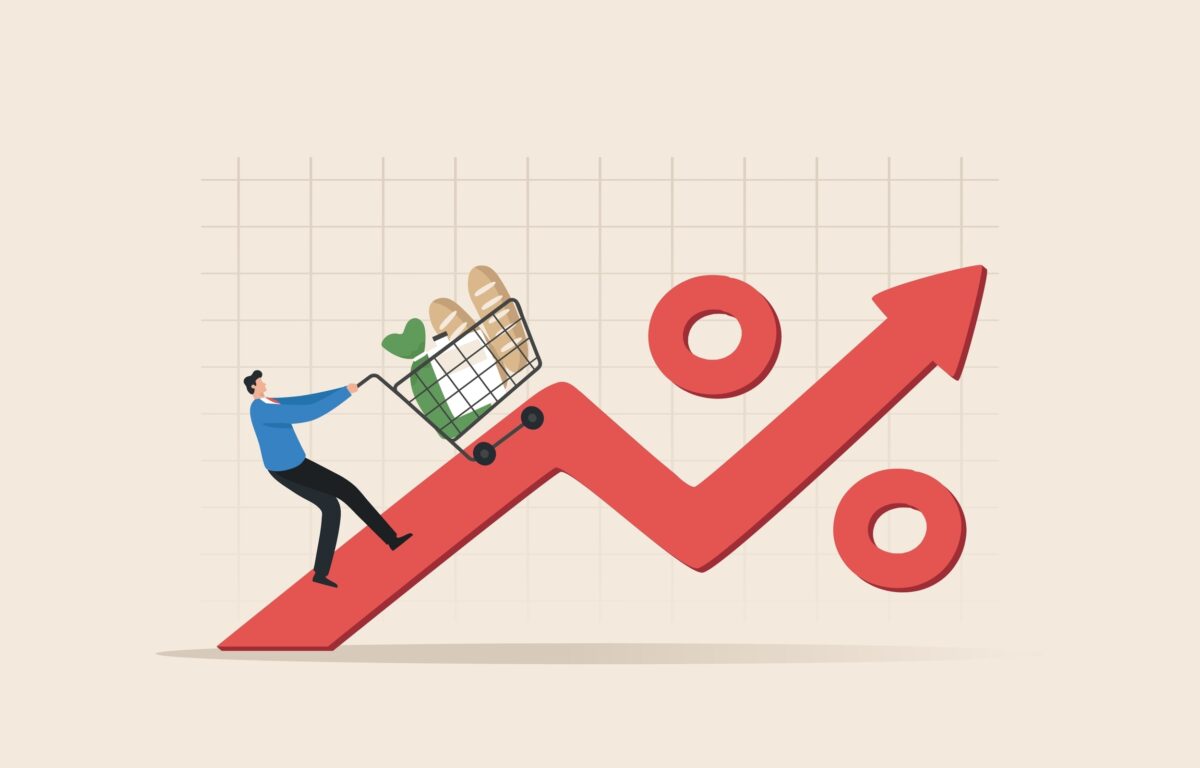


Commentary
According to the University of Michigan, inflation expectations index for five to 30 years reached a 12-year high of 3.2 percent. At the same time, the consumer sentiment index declined to 63.5, compared to a pre-pandemic high of 300. The deterioration in the situation of consumers is evident.
The official narrative is that inflation is under control. However, many tend to forget that reducing inflation from 9.0 percent to 5.0 percent is relatively easy. The challenge is to bring it further down to the Federal Reserve’s target of 2 percent.
Inflation is a hidden tax. A governments always try to hide the loss of purchasing power or blame anything but itself, but the only reason that causes most prices to rise at once is printing money well above the actual demand for it.
According to the Bureau of Labor Statistics, in April, the U.S. Consumer Price Index increased 0.4 percent, seasonally adjusted, and rose 4.9 percent over the last 12 months, and core inflation increased 0.4 percent, up 5.5 percent over the year. This means that the U.S dollar has lost a purchasing power of 14 percent since 2019 and 35 percent since 2008.
The government’s failure to contain inflation is evident. Government spending has not been reduced at all, and that means a higher consumption of newly created units of currency. Rate hikes and a money-supply slump are only weakening the private sector while government continues to spend way above the levels of 2019. That is why the narrative is switching to try to make citizens accept an annual inflation of 3 percent instead of 2 percent. The message is that it is virtually the same, but it is not. Rather, it means a faster rate of impoverishment.
Many politicians try to convince us that now we must choose between inflation and growth, but that is a false dilemma. Inflation is generalized impoverishment, and, of course, it does not imply that there is growth. In fact, the evidence in most developed economies is a phenomenon closer to stagflation.
U.S. GDP recovered its pre-pandemic level in 2022. However, public debt continues to rise faster than GDP, and the accumulated inflation in that period is 15 percent. It may not be stagflation technically, but it is strikingly close. The United States is a more dynamic economy than most developed countries, so the situation is not as dire as in those nations where government spending is now more than 40 percent of GDP.
Inflation is the evidence of a dangerous imbalance that impoverishes everyone. It is the evidence of an excess of currency in the economy that creates a widespread loss of the purchasing power of salaries and deposits savings. Inflation is a transfer of wealth from the productive sectors and families to the government, which is the only one benefiting from rising prices because it collects more tax receipts and dilutes part of its indebtedness. However, the voracious deficit-addicted state is not even capable of reducing its fiscal imbalances with inflation. During periods of inflation, the state embarks on even more spending, assumes that extraordinary tax receipts are permanent, and instead of reducing debt, it continues to increase it.
Those who defend inflationism to reduce debt forget that the first inflationist, the government, always has the incentive to increase its fiscal imbalances even when it has record tax receipts. A government that utilizes all the tools of so-called Keynesianism always leaves a massive trail of debt and economic weakness. All the “stimuli” consumed in periods of recovery create a boomerang effect and make the inevitable recession worse.
Growth does not come from indebtedness, public spending, or inflation. Growth comes with prudent savings and investments.
What we are experiencing these days is a slow expropriation of the wealth created by the productive sector with the sole objective of massively inflating political spending with an extractive and confiscatory strategy. Inflation is robbery.
Views expressed in this article are the opinions of the author and do not necessarily reflect the views of The Epoch Times.
